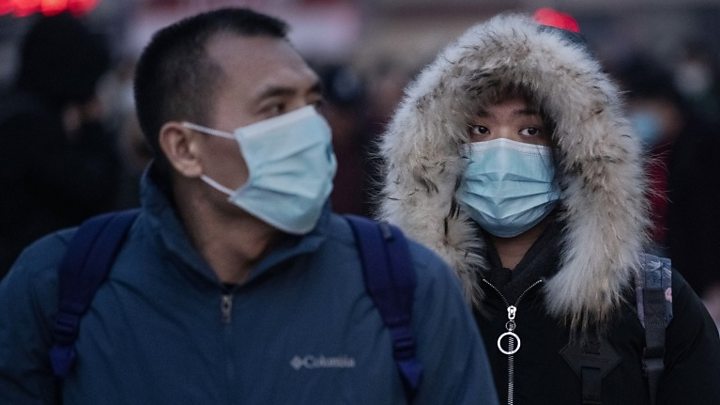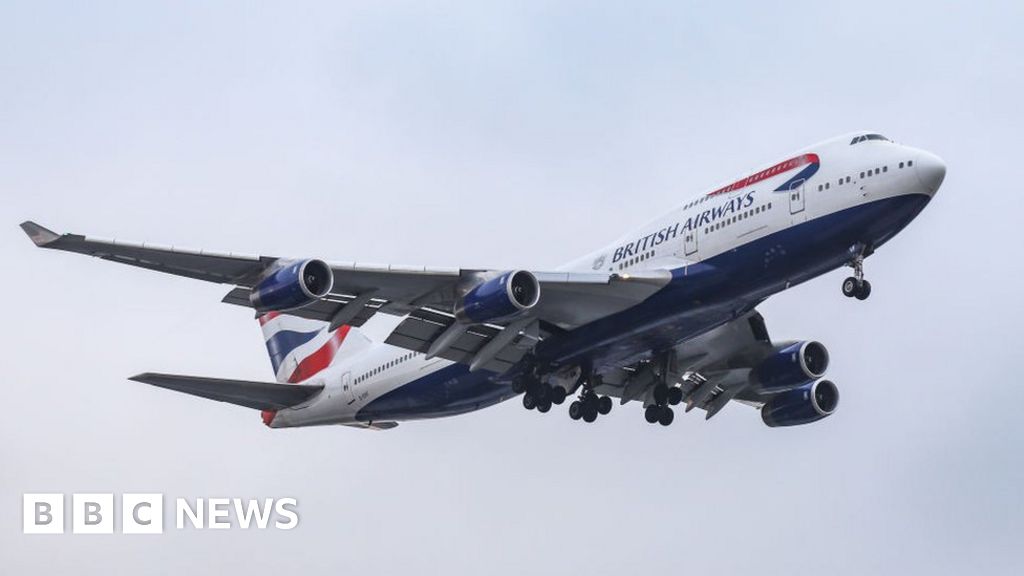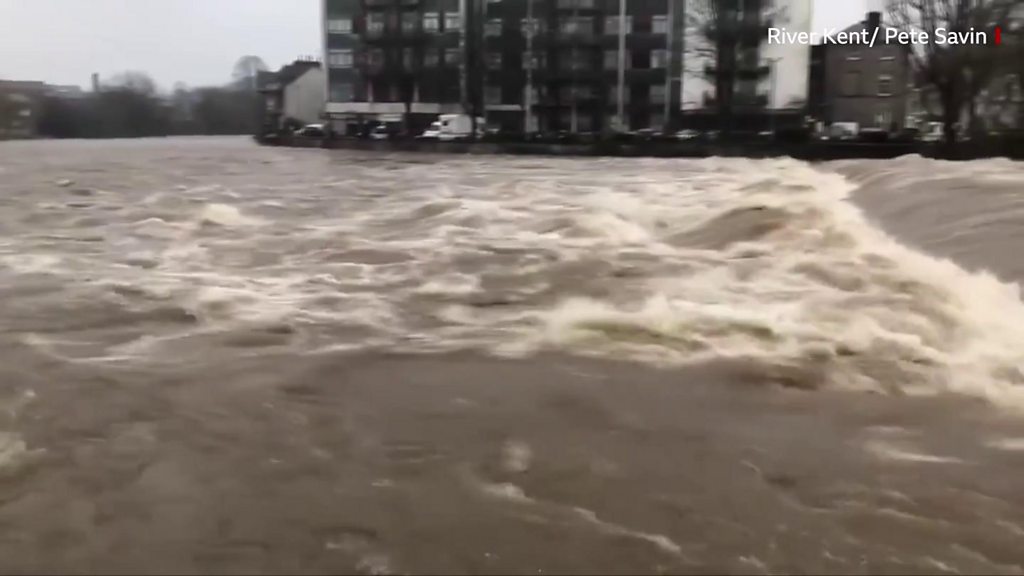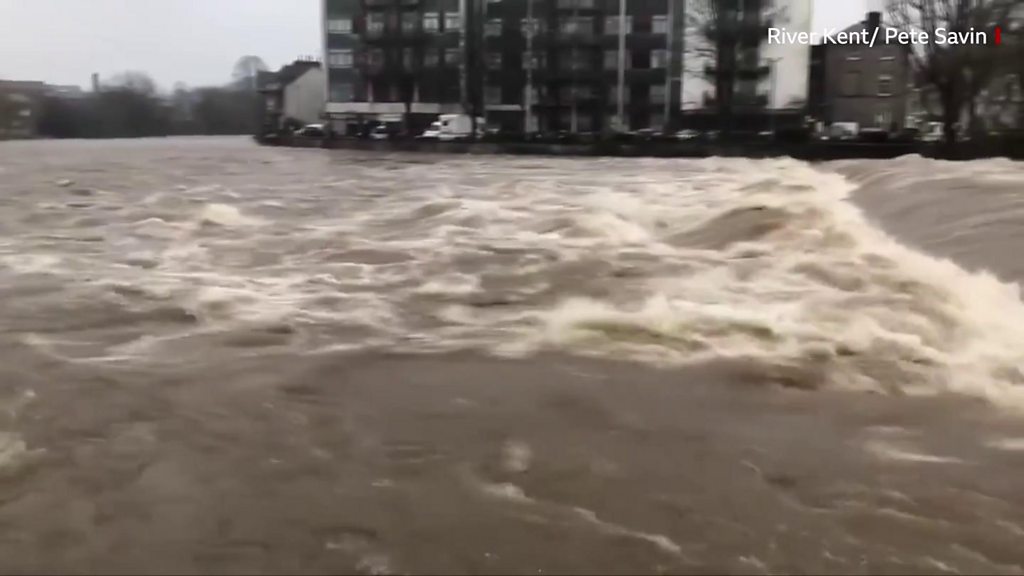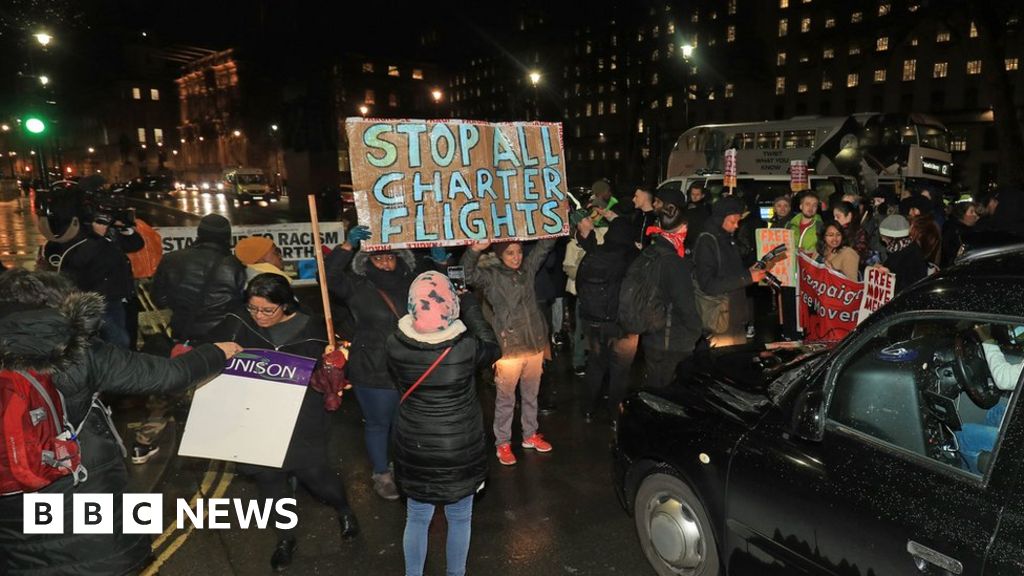
A Home Office flight deporting convicted offenders to Jamaica has left the UK, despite a last-minute legal challenge.
About 50 people were due to be on the plane, but Chancellor Sajid Javid said in the end there were "around 20".
The court order on Monday stopped the government deporting some of those due to leave, amid concerns they may not have had access to legal advice.
Mr Javid said no one protected by the court ruling was on the flight.
All of those being deported are Jamaican nationals who have been convicted of criminal offences and served prison sentences of 12 months or more.
"It is absolutely right that when they have served their sentence that we send them out of the country," Mr Javid told BBC Radio 5 Live.
"They are not British nationals, they are not members of the Windrush generation, they are all foreign national offenders."
The flight had been due to leave for Kingston at 6:30 GMT on Tuesday.
On Tuesday, the Home Office said: "We make no apology for trying to protect the public from serious, violent and persistent foreign national offenders.
"The court ruling does not apply to all of the foreign national offenders due to be deported and we have therefore proceeded with the flight."
Court ruling
On Monday, the Court of Appeal ruled the government should not deport detainees from Colnbrooke and Harmondsworth detention centres, near Heathrow, after lawyers argued mobile phone signal problems meant some of the detainees could not get legal advice.
The ruling said the government must not deport anyone from those centres unless they had access to a functioning, non-O2 Sim card on or before 3 February.
The original number due to be deported on the flight was about 50, but it is unclear how many people are onboard following the ruling.
Mr Javid told Sky News: "I don't know the exact number but I think it is around 20 - or above 20."
There had been calls for the government to suspend the flight until a report on the Windrush scandal has been published.
A leaked draft of the report said the government should consider ending the deportation of foreign-born offenders who came to the UK as children.
Campaigners argued that most of the detainees due to be deported had spent the majority of their lives in Britain.
Bella Sankey, director of charity Detention Action, told the BBC News Channel: "In these cases where people have been here for a long time and are to all intents and purposes British, by deporting individuals like that you are doubly punishing them.
"For many of these individuals deportation is a much harsher sentence than the time they've already served. Imagine being forever banished from the country you grew up in, unable to visit all of your close family and friends."
Tottenham MP David Lammy said it was an "outrage" that the flight had departed.
"The government wants to give the impression that everyone who was deported was a hardened violent criminal, but the reality is many of those who were scheduled to be deported had committed non-violent, one-time drugs offences.
"The lessons from Windrush have not been learned. Lives are being ruined because we don't remember our history."
Labour's shadow home secretary Diane Abbott said removing the detainees was "unfair", adding: "Many of the proposed deportees came here as children and have no memory of Jamaica."
But on Monday, Home Secretary Priti Patel said many of those on board were guilty of "serious offences", including rape and dealing class A drugs.
Every person on the flight had "received a custodial sentence of 12 months or more", she said.
Therefore under legislation introduced by the Labour government in 2007, Ms Patel said, "a deportation order must be made".
'I have no-one in Jamaica'
One of those who had been due to be deported on Tuesday is father-of-five Howard Ormsby.
He was jailed for 18 months after he was convicted of possession with intent to supply class A drugs and he was released in December.
"I came here at the age of 15 with my older sister and I've been here 18 years of my life," the 32-year-old said, speaking to the BBC's Victoria Derbyshire show from a detention centre at Harmondsworth, west London.
"I've never tried to deny the fact I've made a mistake, but everyone has a chance to right their wrongs.
"I have all my family here - I have no-one in Jamaica."
Have you been affected by issues covered in this story? Share your experiences by emailing haveyoursay@bbc.co.uk.
Please include a contact number if you are willing to speak to a BBC journalist. You can also contact us in the following ways:
- WhatsApp: +44 7756 165803
- Tweet: @BBC_HaveYourSay
- Please read our terms & conditions and privacy policy
https://news.google.com/__i/rss/rd/articles/CBMiJGh0dHBzOi8vd3d3LmJiYy5jb20vbmV3cy91ay01MTQ1NjM4N9IBKGh0dHBzOi8vd3d3LmJiYy5jb20vbmV3cy9hbXAvdWstNTE0NTYzODc?oc=5
2020-02-11 08:55:49Z
52780598379734
